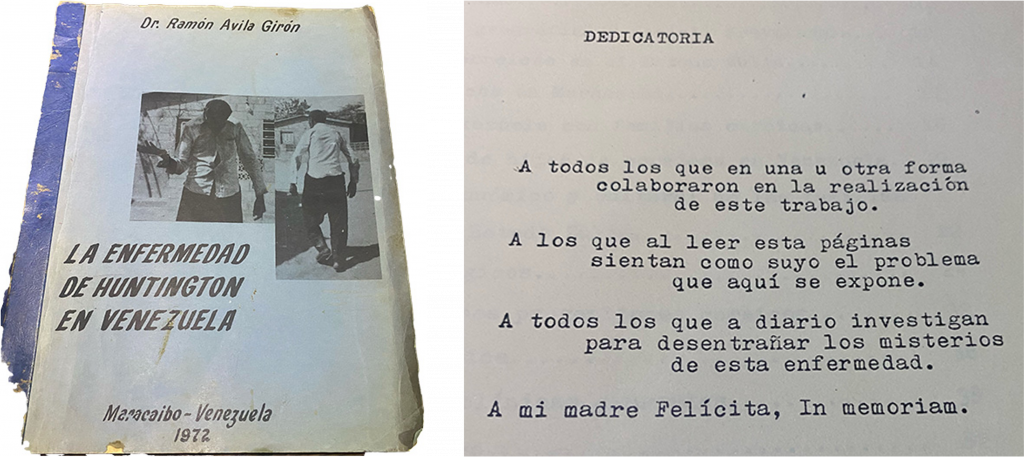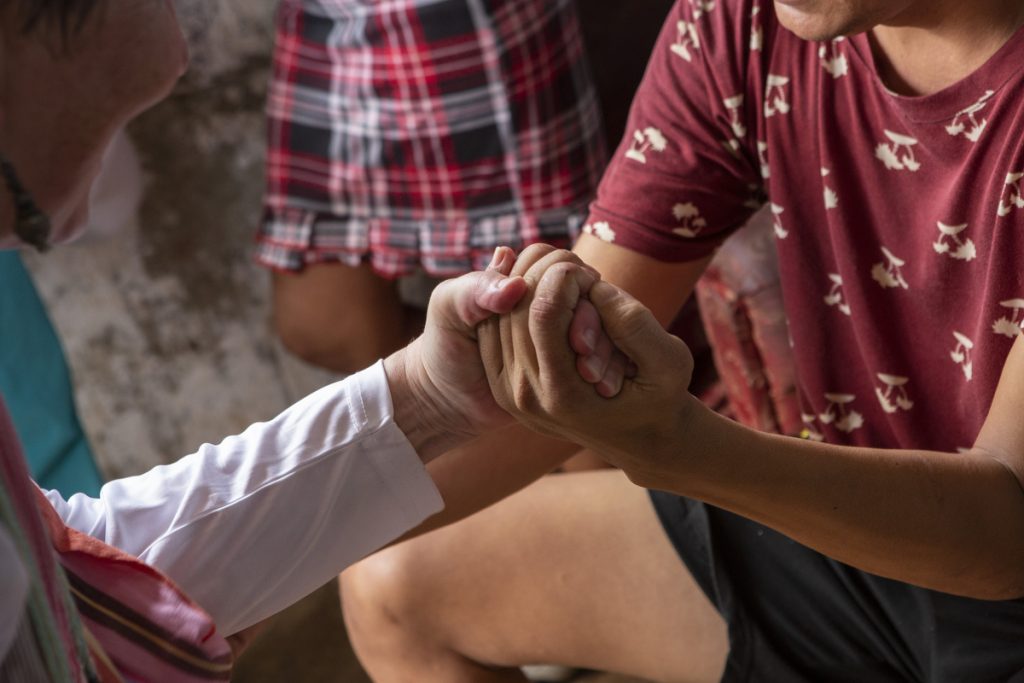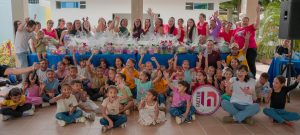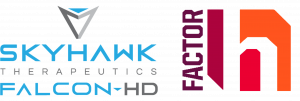From September 6-14, 2023, Factor-H visited the HD communities in Barranquitas and San Luis and conducted medical, educational and humanitarian activities with volunteers and affiliated organizations. Below you can see a video summarizing the trip and a detailed diary of our visit.
Text by Marina Gonzalez de Kauffman & Ignacio Muñoz-Sanjuán
Video by Gindel Delgado; Photography by Vladimir Marcano
Five years have passed since the last visit that Factor-H made to Maracaibo and Barranquitas in December 2018; during this period, Venezuela experienced very difficult moments, in addition to the COVID-19 pandemic. A monetary reconversion, the highest inflation in the world – inter-annual rate of 439% according to the Venezuelan Finance Department- and the most important sociological impact of all time in the history of the country: the permanent and extensive migration that has placed Venezuela in a position close to Syria, a country at permanent war.
By June 2023, Bloomberg asserts, some 7.3 million people had left the country and our communities with Huntington’s disease have not escaped this phenomenon. Between 40 and 50 people migrate daily from Maracaibo and Barranquitas, leaving behind derelict communities and a loss of young people.
For the first time, the entire Factor-H reunited in Venezuela. Ignacio Muñoz-Sanjuán, Roger Cachope, the Colombian Factor-H team (Leyla Mieles, Arnel Arroyo, Zuleima Bonilla, Brayan Hernández, and Diego Molina), Aleska González de Zambrano, president of the Caracas based AVEHUN, and Alexandra Fisher, the first foreign professional to visit Maracaibo representing the European Huntington’s Disease Network.
Below we take you on a journey to better understand the situation on the ground in Zulia State.
September 7, 2023: visits to the community of “El Bajo”, an area near San Luis.
Alex Fisher, a UK-based occupational therapist and expert in the management of HD patient care, was accompanied by Miriányela Fernández and Angel León, two of our social workers, to carry out visits to patients and families. Each person visited received a donation of powdered nutritional supplements and diapers.
This visit was to determine the care needs of the patient and the caregivers and guide the families to better care for the patients according to their current conditions. In total, we visited five (5) individuals with HD, none of whom are bed-ridden, since in this area all late-stage patients passed away between December and August – 10 people in total. This activity helped Alex understand the level of need and how best to approach caregivers’ education in conditions of extreme difficulty due to poverty and lack of access to adequate housing.
September 8, 2023: visits to the San Luis community.
On this day, five (5) people with HD were visited, and each person received a donation of nutritional supplements and diapers.
The visit consisted of a conversation with the family and the patient, a check of the type of diet and general therapy recommendations made by Alexandra Fisher and with guidance by Dr. Cachope.
It is important to mention that this type of visit is carried out with great care and respect for the privacy and situation of the patient and family. Not all people enter the home. Some visitors remain outside the house and the specialists are the only ones who enter their homes. These visits are carried out periodically by the local team. This activity was entirely recorded in photographs and videos.
In the afternoon, two teams of children between 9 and 12 years old from the San Luis area, organized to start the Sports, Art, and Recreation Program, played the “Cup of Hope.” Moments of great emotion, with the demonstration of the agility and enthusiasm of the boys and their coaches. The team will look for the possibility of getting suitable shoes for all the children, since they were given their emblematic t-shirts, but many of them played barefoot.
The welcome dinner was held with the joy of a long-awaited reunion.
September 9, 2023: medical care activity for people with HD & children at-risk in Barranquitas.
This is one of the periodic activities that takes place every 3 months in the community of Barranquitas and the San Luis area in Maracaibo. In 2023, three (3) of these activities have occurred in Barranquitas and three (3) in the San Luis area.
All the health personnel from the University of Zulia medical school who participated in these activities are volunteers. In total, there were eleven (11) volunteers who were health specialists, in areas indicated below:
One (1) adult neurologist and one (1) neurology resident at the point of mass care and one (1) for the care of bedridden patients with one (1) general practitioner, one (1) physiotherapist, one (1) physiatrist and one (1) occupational therapist, along with Ignacio Muñoz-Sanjuán and Roger Cachope. Samuel Nova, our long-term employee in Barranquitas, guided the clinical teams to the homes of patients. In total, twenty-seven (27) patients with HD were treated, of which six (6) received a home visit and a donation of diapers and nutritional supplements, in addition to the prescribed medications.
At the mass consultation point, two (2) pediatric neurologists and two (2) pediatricians were also installed to care for thirty-six (36) children at risk of HD with various conditions.
Fourteen (14) volunteers from Barranquitas itself supported the entire activity: five (5) collaborated as assistants to the doctors on site, to record the patients seen and their conditions; three (3) volunteers collaborated to measure the patients’ heights and weights; three (3) volunteers carried out control procedures for the medical appointments; three (3) volunteers supported the distribution of hydration.
We also had a pharmacy on site, managed by nine (9) Maracaibo collaborators, for the distribution of the prescribed medications to be donated – a total of 1,138 pediatric medications and 903 adult medication. One (1) volunteer from Maracaibo also supported the loading and unloading process of equipment and belongings, as well as the needs and requirements of the other volunteers with specific activities.
That day the team was accompanied by Mrs. Aleska de Zambrano, president of AVEHUN and Eng. Arturo Arenas, president of ASOHUNTINGTON, also from Caracas, who showed their appreciation for the work being done.
September 11, 2023: signing of the Agreement with the Salesian Ladies.
This was a very special day – the beginning of an alliance to improve the medical care conditions of people with HD. With this agreement, the Neurological consultation and a pharmacy point are established at the Don Bosco Ambulatory, located near San Luis. In the outpatient clinic there are other specialties that can support the care of patients’ comorbidities and laboratory and ultrasound services, as well as HIV screening.
The person responsible for the consultation will be Dr. Aura Pernia, a neurologist with extensive experience in the subject of Huntington’s disease and one of our leading collaborating clinicians.
On this day, Ignacio Muñoz-Sanjuan received a unique and historical document for Factor-H: an original work by Dr. Avila Girón, written in 1973, on Huntington’s disease in the community of San Luis. This was given to him by Dr. Avila ‘s nephews, Liliana and Leonardo Avila.

September 12, 2023: exhibition and conferences.
A day of many emotions and formal commitments to the local HD community. It began with the inauguration of the painting exhibition: “A brushstroke of hope”, by the painters of the Dancing with the Art of San Luis Program, which was held at the main headquarters of the Venezuelan American Center of Zulia -CEVAZ-. The opening of the exhibition was a moment filled of emotions, the painters Yoelbis Soto and Katy Hernández accompanied the moment with their families and enjoyed a different moment that allowed them to be recognized by many people.
CEVAZ (The Venezuelan-American Center of Zulia) collaborated in the organization of the conference: “Huntington’s Disease: Advances, Therapies and Humanitarian Program in Zulia”, which included the topics: Huntington’s Disease: from genetics to experimental therapies (Ignacio Muñoz-Sanjuan); Manifestations and progression of HD (Roger Cachope); Pharmacological and non-pharmacological management of HD (Michael Orth via video); Huntington Program : A Hope Project in Zulia (Marina G. de Kauffman). During the question-and-answer we received the public commitment of the Genetics Laboratory, the School of Medicine and Nutrition to create a community service that accompanies the Huntington Program. A lot of enthusiasm was generated that we hope will be capitalized and materialized in specific actions and events. It is important to mention that many people also registered as volunteers to support the Program.
September 13-14, 2023: visits to people with HD in areas near San Luis, and distribution of the donation of food, hygienic, and school supplies in San Luis.
As in previous days, these visits were made to determine the care needs of the patient and the caregiver and guide the family in the way of caring for the patient according to their current condition. In total five (5) people were visited.The food donated by our partner CEVAZ was also distributed among all the families visited.
We started very early and 90% of all the donations that had been organized for that day were distributed, including notebooks and pens and other school supplies. We also delivered food for every affected family in San Luis, in an activity held in the local church. Additionally, a point was told for the children that had a very particular purpose: in the communities where we work, death is most certain and affects all kids who witness the disease toll on the community and their relatives. The children have become accustomed to illness and death that are constant around them.
Death in these communities is ever present, and children should go through a process of mourning and honoring the person who has passed. 3 weeks before this activity, one of the kids in the program, Juan David, a beautiful 5-year-old boy who lived in San Luis, passed away.
Therefore, as part of our psychology program, we conducted an exercise to teach kids to speak about death and to better cope with its constant presence, and we included Juan David’s mother. The children were able to understand the importance of honoring and remembering the friend who is not here anymore. Some even had the question “if I die, will they also do this for me?”
Finally, we also encountered very difficult living conditions for many kids living with an HD parent – below are some images that speak to the suffering of these families, and which serve as a reminder of the work we still have to do to help these kids have more opportunities to thrive. Factor-H is committed to helping every family living with extreme needs in these communities.



